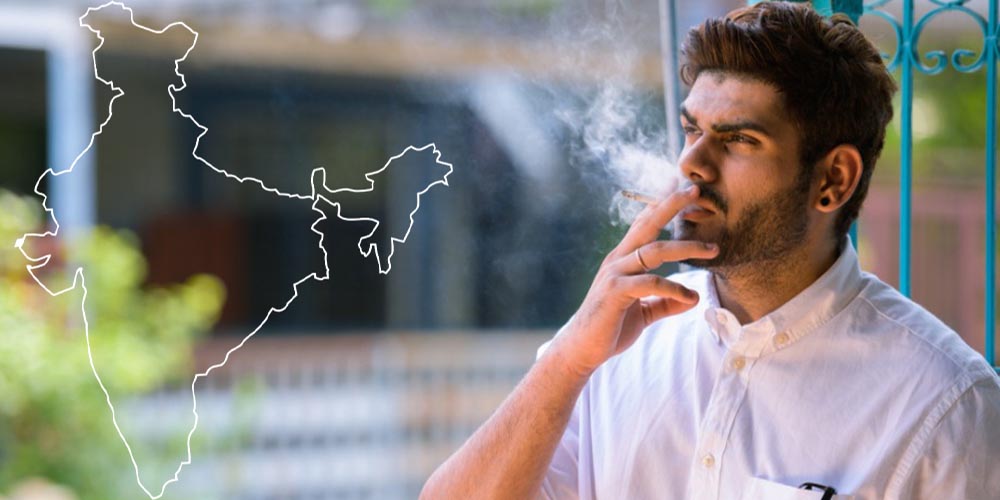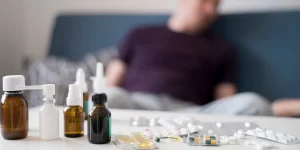Almost a decade ago, the United Nations conducted a survey on drug use in India. The results of the survey stated that most Indians first interacted with drugs while they were still young. Recently, the National Drug Dependence Treatment Centre (NDDTC), a part of the prestigious All India Institute of Medical Sciences (AIIMS) conducted another survey titled The Magnitude of Substance Abuse (2019). This survey revealed that the age of people dependent on drugs in India varies between 10 and 75 years. The number of females depending on drugs is also rising.
Furthermore, the most commonly abused substances in India are alcohol, cannabis, and opioids, with one in every five alcohol users showing alcohol dependency; one in every 11 users showing cannabis dependency; and 0.7 percent of the population showing dependence on opioids. Considering these numbers, there is an urgent need for more de-addiction centers in India to fill in the huge gap between the availability of addiction treatment options and the need for it.
Scarcity of De-addiction Centers
According to Dr. Atul Ambekar, an additional professor at the NDDTC, “There is no data to meet the shortage of treatment facilities, but the scarcity is huge. We require de-addiction centers in every portion of the country. If the correct training is provided, district doctors and community health centers can give basic treatment. For specialized drug cases, higher centers like AIIMS can be referred.” Moreover, India has only 4,000–4,500 psychiatrists and currently all of them do not facilitate de-addiction treatment.
Since the risk of relapse is high while treating drug abuse patients, it is important to enroll into credible treatment facilities for effective treatment. The risk of physical ailments also rises once the symptoms of substance dependence start manifesting. A report by the United Nations Office on Drugs and Crime (UNODC) stated that around 255 million people worldwide consume illicit drugs, of which 29.5 million are patients of drug use-related disorders. The severity of substance abuse and its impact on the life of the patient and their loved ones is something that needs to be mitigated immediately.
De-addiction Centers in India: A Way Forward to a Better Life
The behavior of person dependent on substances varies upon their consumption patterns, duration of consumption, and severity of addiction. Therefore, when a patient enrolls in a mental health and de-addiction center, they are introduced to and supported with effective treatment pathways. The medical professionals at a de-addiction center deliver treatment based on the early diagnosis and symptoms of the patients.
The treatment pathways provide elaborate treatment programs comprising counselling interventions, medication management, and therapy programs. These enable the patients to overcome addiction and any mental disorder that they are suffering from. Being in constant touch with the professionals ensures easy transition to normal life. It allows the patient to reconnect with their friends and families so that the patients can lead a happy and productive life.
Process of Addiction Treatment
Leading de-addiction centers in India offer a treatment program based on global parameters followed for effective treatment. These include:
- Pre-treatment: The treatment starts with a complete detox to rid the body of the toxins accumulated with prolonged drug use, manage withdrawal symptoms, and prepare the body for further treatment. This treatment is provided to both substance use and dual diagnosis patients. It takes three to 10 days to complete.
- Stage 1: Primary Treatment: The primary treatment program is administered only at a residential de-addiction center. During this phase of treatment, the patient learns how to respond to triggers and manage symptoms effectively. This stage lasts from 30 to 90 days, based on the severity of the symptoms, duration of addiction, and the substance/s abused.
- Stage 2: Stepped Down Treatment: Once the primary treatment is completed, the patient enrolls into a stepped-down treatment program like outpatient care or partial hospitalization plan (PHP). This enables them to reintegrate with the outside world while attending group therapy sessions for continuous and extended support. The duration of this stage lasts between 60 and 90 days.
- Stage 3: Post Treatment: Continuing Care and Relapse Prevention: This stage includes a combination of complementary group therapy sessions to provide daily recovery practices. The timings are reduced in stage 3 for greater self-management and independence. The ongoing care program enables the therapists to monitor the patient’s symptoms and act immediately if a relapse situation is observed.
Make a comeback!
Getting timely treatment for addiction from professionals is the first step in the direction of getting back to normal life. Athena, the leading mental health and de-addiction center in India, understands the battles involved in addiction. That is the reason we provide holistic addiction recovery programs to patients in a controlled and compassionate environment.
Our comprehensive programs are customized to suit each patient’s needs and requirements. We offer medical detox, medication management, counselling sessions and therapeutic intervention modalities. To know more about our residential addiction treatment, call our 24/7 helpline 9289086193. Alternatively, you can chat online with our trained representatives for further assistance.






